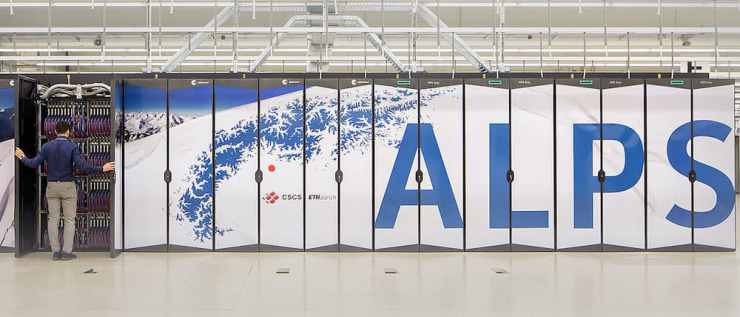Much of the progress being made in AI is captured within private companies aiming to keep it to themselves in order to profit from it. Open AI, a project started as an open-source non-profit has morphed into a largely closed-source profit-maximising project increasingly integrated into the software company Microsoft. Many see open-source as critical to the healthy development of AI. A super computer combined with the knowhow of Switzerlands world-leading federal universities could help to swing the pendulum back into the open-source court, reported SRF this week. © CSCSThe supercomputer is based in the CSCS data center in Lugano. It will contain 10,000 superchips and will be able to perform four peta operations per second – a peta is 1,000,000,000,000,000,000,000 or 10^15. The
Topics:
Investec considers the following as important: Business & Economy, Editor's Choice, International, Science and technology
This could be interesting, too:
Investec writes The global brands artificially inflating their prices on Swiss versions of their websites
Investec writes Swiss car insurance premiums going up in 2025
Investec writes The Swiss houses that must be demolished
Investec writes Swiss rent cuts possible following fall in reference rate
Much of the progress being made in AI is captured within private companies aiming to keep it to themselves in order to profit from it. Open AI, a project started as an open-source non-profit has morphed into a largely closed-source profit-maximising project increasingly integrated into the software company Microsoft. Many see open-source as critical to the healthy development of AI. A super computer combined with the knowhow of Switzerlands world-leading federal universities could help to swing the pendulum back into the open-source court, reported SRF this week.

The supercomputer is based in the CSCS data center in Lugano. It will contain 10,000 superchips and will be able to perform four peta operations per second – a peta is 1,000,000,000,000,000,000,000 or 10^15.
The centre is set to be the first public scientific institution to receive the latest generation of graphics chips from Nvidia known as Grace Hoppers. It is not known how much CSCS is paying for the chips, but it is likely to be substantially less that their current market value of several hundred million francs. The centre has been working with Nvidia for more than 10 years and has helped with the chip’s design and made an order for it long before the recent AI boom.
Named “Alps”, the new supercomputer, which sits in an inconspicuous building next to a football pitch, represents a unique opportunity for Switzerland, said Torsten Hoefler, professor of high-performance computing systems at ETH Zurich. It will allow us to compute artificial intelligence at a world-class level and thus move Switzerland to the forefront of AI, he said.
Because supercomputing infrastructure is in short supply due to the sharp increase in demand for generative artificial intelligence such as ChatGPT, Bing or Google Bard, tech companies with a lot of money have an advantage. Tech companies are simply not transparent, because the moment they become transparent, they lose their business, said Hoefler.
The new high-performance computer in Lugano should make it possible for scientists and the public to train a language model like ChatGPT from scratch while respecting copyrights, said Hoefler. The AI initiative run by EPFL and ETH plans to publish its research results and make the data available to everyone, hopefully bringing the open-source dream back to life.
More on this:
SRF article (in German)
For more stories like this on Switzerland follow us on Facebook and Twitter.
